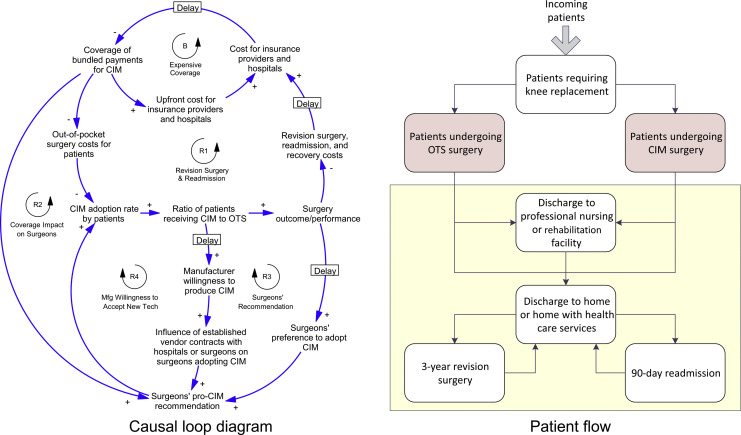ITA researchers Mohammad Jalali and Vahab Vahdat worked with colleagues from Northeastern University, MIT, MGH, and Yale to develop a simulation model to determine if adopting customized, individually made knee implants would result in substantial reductions in the cost of total knee arthroplasty (TKA) procedures, recovery, readmissions and revision surgeries.
Customized, individually made knee implants (CIM) have been adopted slowly since being introduced around 2011. Aside from the natural resistance to adopting new technology, surgeons and hospitals tend to prefer off-the-shelf implants (OTS) because of proven outcomes, familiarity, perception of lower legal risk and established contracts with manufacturers.
One of the greatest barriers, though, is that the upfront cost for CIM is 20% to 30% higher than for OTS. Both Medicare and third-party payers typically pay hospitals a bundled payment for all costs associated with total knee arthroplasty (TKA) and the following 90 days of care, so hospitals have a profit motive to contain expenses during this period.
Potential long-term savings, such as savings from fewer revision surgeries, are not relevant to a 90-day bundled payment. This situation highlights the need for more cost-effective long-term strategies, according to Hany S. Bedair, MD, of the Department of Orthopedics at Massachusetts General Hospital, and colleagues.
To read more, visit https://advances.massgeneral.org/ortho/journal.aspx?id=1326
